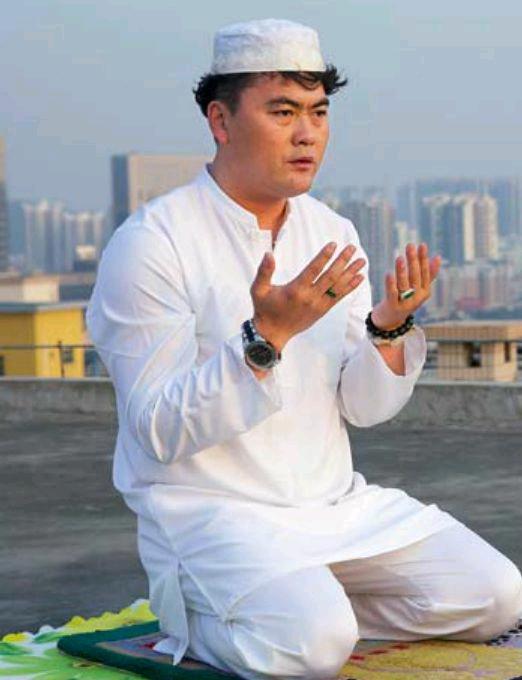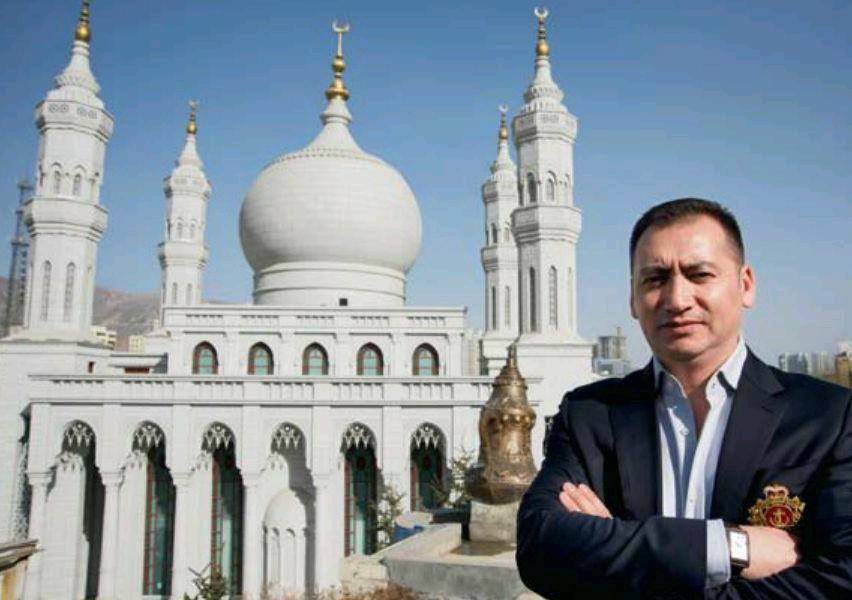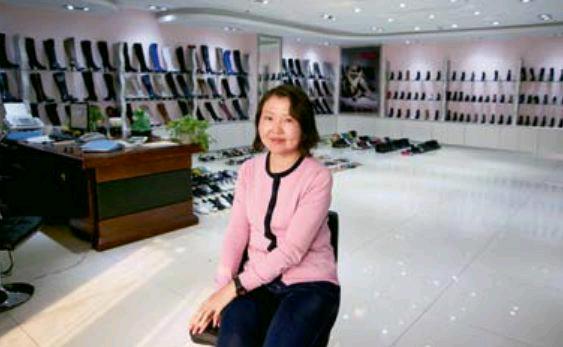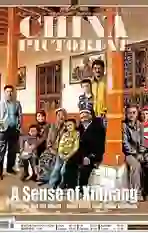Faces of Xinjiang
2014-07-28byKurbanjanSamat
by+Kurbanjan+Samat
My name is Kurbanjan Samat, and I am a Uygur from Xinjiang. Im 32 years old, and have lived in Beijing for eight years. Now I work as a camera operator with China Central Television (CCTV), as well as a freelance photographer.
I was born in Hotan, a noted jade producer in Xinjiang. My father has been a jade trader for more than three decades. He told his four children, including me, to learn and see more. I couldnt speak any Mandarin until 1998. When I enrolled at Bozhou Teachers College, I asked to share a dormitory with students from the Han ethnic group in order to learn more Mandarin.
Ive taken a great many photos depicting Xinjiangs natural scenery and traditional culture. I thought the photos were enough to inspire admiration of Xinjiang. In 2013, I visited New York City, where I was impressed by what I saw at some photography exhibitions. In that moment, I realized that photos documenting lives of ordinary people are the most touching.
Recently, terrorist attacks have seen an increase in China. I really hate terrorists regardless of their ethnicity or religious beliefs. I grieve over victims of those attacks and feel sorry for the loss of their families. Why such terrorist attacks happened and how to address them have become issues facing society at large, not just a certain group of people.
Over the past couple of years, through reading comments posted on the internet, Ive realized that people no longer care about Xinjiangs beautiful landscapes as much as before, but are more interested in what Xinjiang natives are doing and what causes the tension.
My photo series, Im from Xinjiang, may provide some answers. In it, I documented the everyday lives of people from Xinjiang who now live elsewhere in China. Among them are restaurateurs, jade merchants, white-collar workers, nightclub singers and dancers, lawyers working in the United States, and world-renowned artists and designers. They come from a variety of ethnic groups in Xinjiang. Through conversing with them and hearing their stories about reaching for their dreams, I explored a theme deeper than I expected: The kind heart of humanity transcends boundaries of ethnicity and religion.
A few separatists mistakes could ruin the image of all Xinjiang natives. The establishment of a positive image requires endeavors to promote mutual understanding. Perhaps the most effective way to remove labels stuck on people of Xinjiang heritage is sharing stories of hardworking Xinjiang natives like me.
Ahmatjan, 36, from the Uygur ethnic group, is an engineer with the Addax Project Department of Sinopec Research Institute for Petroleum Exploration and Development. In 2000, he enrolled into China University of Petroleum in Beijing. After acquiring a masters degree, he left to Germany for a doctoral program.“After settling in Beijing, my wife came from Xinjiang to join me, and now she operates a restaurant offering Xinjiang cuisine in Beijing. My goal this year is to become a senior engineer.”
Bayirta and his wife, Bayan, are from the Mongolian ethnic group.“I was once a guitarist and composer with Marnyi Stone Band, the first original Tibetan music band in China. In 2011, the band won the China Tibetan Singing Festival organized by Sichuan Satellite Television. Bayan is a singer. We recently got married. Were going to launch our own band this year.”
Xie Yaer, from the Han ethnic group, is a news anchor on Beijing Peoples Radio. “In 2012, I spent four months serving a charity campaign launched by Beijing aiming to help Hotan residents. Only a few families I visited were of the Han ethnic group. Except for language, I found little difference between me and local Uygur residents, who were all hospitable and straightforward. I took photos with every person I met there. Later, I assembled those photos into a single picture and posted it on my Weibo (Chinas Twitter) to show viewers the real Hotan. My dream is to visit Hotan again during a pleasant season. This time, I will take more photos with a better camera and buy more Hotan rose jams.”
Hong Qi, 41, is a Uygur folk singer and poet. “I was born to a Uygur family in Hotan. My parents were too poor to afford raising me, so they found a Han family to adopt me. I never sought out my biological parents because my adopted parents loved me and I had a happy family. While I served in the army in a desert, my desire to sing emerged. From singer to composer, I have published three albums. I dont like the prejudices and disputes between Uygur and Han people. No matter how tiny my influence may be, I want to do all I can to mend the relationship. Im preparing to build a Xinjiangthemed cultural industry park in Shenzhen, for which I often fly between Beijing, Xinjiang, Shanghai, and Shenzhen. I hope the cultural industry park will open this year so that more people can understand and like Xinjiang.”

Tohtihan, 42, is a Uygur. “When my husband and I were laid off 15 years ago, we moved to Beijing and opened a stall selling nang (Uygur traditional flatbread) in the Niujie area. We have three children, two in Xinjiang and one with us in Beijing. The reason we came to Beijing was the hope that three children could go to school in the capital, which would give them greater chances of becoming well-educated, useful members of society.”
Nefise, 35, from the Uygur ethnic group, is a lawyer at King & Wood Mallesons Shanghai Office. “I graduated from East China University of Political Science and Law in 2008. As a child, I had dreamed of becoming a lawyer who upholds justice in the most prosperous Chinese city. This year, I started to study at Emory University School of Law. My dream is to be elected a deputy to the National Peoples Congress and to protect and promote the rights of women from ethnic minorities.”
Xayidong, 42, from the Uygur ethnic group, is director and chief creative supervisor of the Research Department of Islamic Architecture under the Design and Research Institute of Beijing LBY Architecture and Decoration Engineering Co., Ltd. “In 2008, I was hired to design the stage for the drama Colorful Kashgar, which was tremendously successful. Then, I found an opportunity to stay in Beijing. Over the following years, I was responsible for decoration designs for mosques in Zhejiangs Yiwu City and Hainans Sanya City. Nanguan Mosque in Xining, capital of Qinghai Province(behind me in the picture), is one of my designs. This year, I was hired for a design project aiming to restore the original look of Kashgar from the 13th Century. This project is particularly important to me. Seeing its exceptional completion is my objective and dream these days.”
Bostania, 30, from the Uygur ethnic group, is the chief supervisor of the Branding and Advertising Department of Tao Journal, an e-magazine under Alibaba Group. “I enrolled at a Zhejiang college in 2000. Upon graduation, I joined Alibaba Group. I have lived on Chinas eastern seaboard for 14 years now. Today, I live in Hangzhou, 4,412 kilometers from my hometown in Bortala Mongol Autonomous Prefecture in Xinjiang. I have a well-paid job, but little time to visit my parents in Xinjiang. Over the past few years, I spent almost all of my vacation days to visit them. My dream is to spend more time with my family this year.”

Tong Tong, 42, from the Xibe ethnic group, works at a Beijing foreign trade company and largely deals with Russian clients. “I have been in Beijing for 15 years, and many people have asked me, ‘Are you really from Xinjiang? You dont look like a Xinjiang native. I explain that Xinjiang is inhabited by many ethnic groups, and Im from the Xibe group. Xibe people moved to Xinjiang from northeastern China in the 18th Century, and still preserve their own language and culture. I started a family in Beijing. My husband is a Manchu, and we have a 4-year-old child. In recent years, I have dreamed of establishing an ethnic cultural center along with others from my group in Beijing to create a venue for Beijings minority residents to make friends with each other and organize events to spread cultures of ethnic minorities.
Amu and his Han friends, founders of Vizdan.
